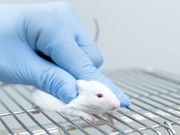Low glucose induction of miR-708 blocked by treatment with chemical chaperone 4-phenylbutyrate
THURSDAY, Oct. 19, 2017 (HealthDay News) — Researchers have identified a novel mechanism of glucose regulation of β-cell function and growth by repressing stress-induced microRNA-708 (miR-708), according to a study published online Oct. 2 in Diabetes.
Júlia Rodríguez-Comas, from the Institut d’Investigacions Biomèdiques August Pi i Sunyer in Spain, and colleagues examined miRNAs that are modulated by glucose in mouse pancreatic islets.
The researchers found that miR-708 was the most upregulated miRNA in islets cultured at low glucose concentrations, which triggers a strong stress response. MiR-708 was also potently upregulated by triggering endoplasmic reticulum stress with thapsigargin and in islets of ob/ob mice. Treatment with the chemical chaperone 4-phenylbutyrate blocked low-glucose induction of miR-708. Neuronatin (Nnat) was identified as a potential glucose-regulated target of miR-708 in integrative analysis. There was an inverse correlation for Nnat expression with miR-708 in islets cultured at different glucose concentrations and in ob/ob mouse islets; this expression was reduced after overexpression of miR-708. MiR-708 overexpression impaired glucose-stimulated insulin secretion (GSIS), which was recovered by overexpression of Nnat, consistent with the role of Nnat in the secretory function of β-cells. In islets cultured at low glucose, miR-708 inhibition recovered GSIS. Overexpression of miR-708 suppressed β-cell proliferation and induced β-cell apoptosis.
“To fully understand whether changes in the expression of this microRNA are the cause or the consequence of β-cell dysfunction in these models still requires further investigation,” the authors write.
Copyright © 2017 HealthDay. All rights reserved.








